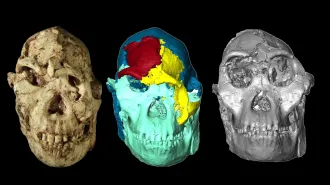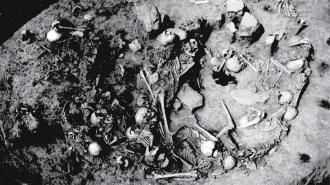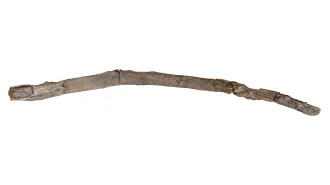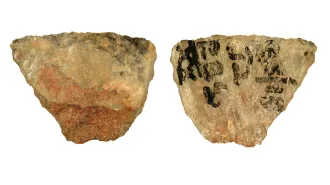Ancient Europeans may have been first wine makers
New analysis shows remnants in clay jar were more than just grape juice
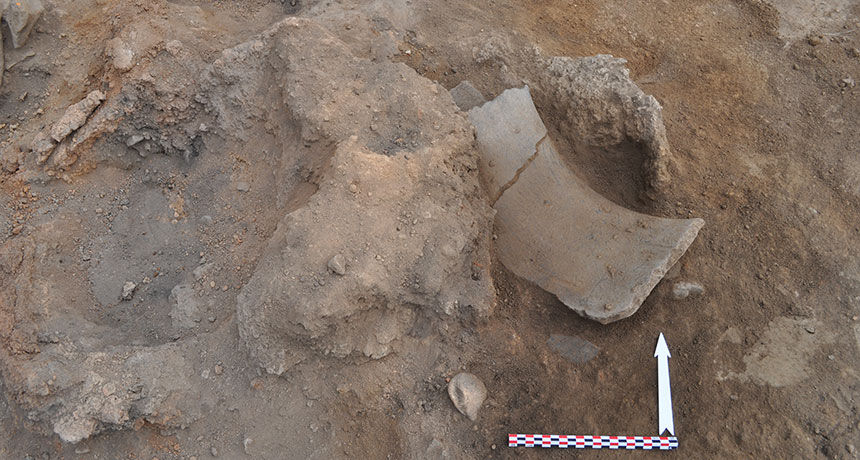
WINE TIME A piece of a roughly 6,300-year-old jar found in Greece contains chemical evidence of fermented grapes, making it the oldest known example of wine making in Europe, and perhaps in the world.
Zoï Tsirtsoni and Pascal Darcque
